The Seven Principles of the Sacred Classroom
The Seven Principles honour a teacher’s journey in class and acts as a guidepost for the evolution of consciousness in him/her and in the classroom.
“It’s time to reclaim the dignity of the teacher in our classrooms!”
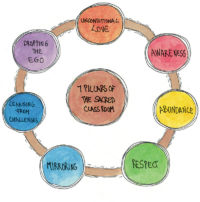 As The Mother describes, the journey of a teacher (or parent) in itself is sadhana, it has its wonderful and challenging moments, all built in. The Sacred Classroom embraces the spirit of the classroom and offers seven guiding principles that serve as guideposts to unblock and evolve in our journey. These spiritual principles are very essential to acknowledge the classroom as a holistic space. Without these, classrooms become spaces of unconscious functioning focussed only on external results. The very soul of teaching is discarded when the spirit is discarded.
As The Mother describes, the journey of a teacher (or parent) in itself is sadhana, it has its wonderful and challenging moments, all built in. The Sacred Classroom embraces the spirit of the classroom and offers seven guiding principles that serve as guideposts to unblock and evolve in our journey. These spiritual principles are very essential to acknowledge the classroom as a holistic space. Without these, classrooms become spaces of unconscious functioning focussed only on external results. The very soul of teaching is discarded when the spirit is discarded.
1. Unconditional Love
“The presence of an aware and yet, a very loving teacher is a precious gift to children.”
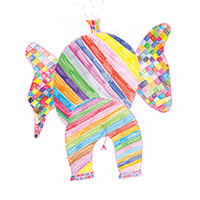 Children thrive in an environment of unconditional aware love. The presence of an aware and yet, a very loving teacher is a precious gift to children. In such an atmosphere, we are very aware of each of our strengths and areas of growth (challenges). Every attempt is made to become conscious and evolve ourselves. An authentic and unconditional space makes room to learn from both triumphs and mistakes and keep our ways of functioning pure.
Children thrive in an environment of unconditional aware love. The presence of an aware and yet, a very loving teacher is a precious gift to children. In such an atmosphere, we are very aware of each of our strengths and areas of growth (challenges). Every attempt is made to become conscious and evolve ourselves. An authentic and unconditional space makes room to learn from both triumphs and mistakes and keep our ways of functioning pure.
2. Awareness
“Awareness helps us understand where we are operating from – Self-awareness and Awareness of others”
 Awareness helps us understand where we are operating from. Self-awareness of our intentions, thoughts, emotions, judgments and expectations helps us in mastering ourselves and at the same time helps hold an unconditional space for our children. Through awareness, we learn to transform our unconscious patterns and stop projecting these on to our children. Awareness also builds discernment, which is very important to understand others and form working relationships.
Awareness helps us understand where we are operating from. Self-awareness of our intentions, thoughts, emotions, judgments and expectations helps us in mastering ourselves and at the same time helps hold an unconditional space for our children. Through awareness, we learn to transform our unconscious patterns and stop projecting these on to our children. Awareness also builds discernment, which is very important to understand others and form working relationships.
3. Abundance
“Abundance is an inner state of infinitive possibilities”
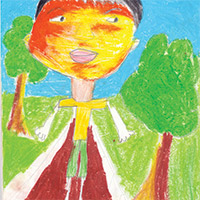 Abundance or Prosperity Consciousness is an inner state of all possibilities. It helps us stay positive in challenging circumstances. We learn not to underestimate the spirit of the child or get bogged down by apparent limitations. Abundance is a state of consciousness where we are open to new possibilities. Learning in an environment of abundance supports the natural creativity found in children.
Abundance or Prosperity Consciousness is an inner state of all possibilities. It helps us stay positive in challenging circumstances. We learn not to underestimate the spirit of the child or get bogged down by apparent limitations. Abundance is a state of consciousness where we are open to new possibilities. Learning in an environment of abundance supports the natural creativity found in children.
4. Respect
“Respect yourself, respect the child”
 Respect is equal for both teacher and children. We need to respect children as special and work with them completely respecting their journey. To develop a positive sense of self, children need adults around them to mirror their worthiness in healthy ways. While this is most essential, it is equally important for all to respect the role played by the teacher who has taken the responsibility for the whole class. A teacher is in charge of the class, and in a position where she must take decisions based on the needs of her entire group of children and the space she belongs to.
Respect is equal for both teacher and children. We need to respect children as special and work with them completely respecting their journey. To develop a positive sense of self, children need adults around them to mirror their worthiness in healthy ways. While this is most essential, it is equally important for all to respect the role played by the teacher who has taken the responsibility for the whole class. A teacher is in charge of the class, and in a position where she must take decisions based on the needs of her entire group of children and the space she belongs to.
5. Mirroring
“Our relationships are mirrors of our growth”
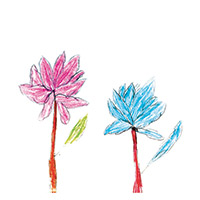 Our relationships are mirrors for our growth. These include relationships in our family, work place and with children. When we experience triggers in relationships, we need to look within and identify our areas of growth. This opens up many avenues for growth and abundance. Children are catalysts in our growth. They are often very pure mirrors and mirror back to us our unresolved areas of growth.
Our relationships are mirrors for our growth. These include relationships in our family, work place and with children. When we experience triggers in relationships, we need to look within and identify our areas of growth. This opens up many avenues for growth and abundance. Children are catalysts in our growth. They are often very pure mirrors and mirror back to us our unresolved areas of growth.
6. Learning from Challenges
“Every situation that challenges us indicates a growth area.”
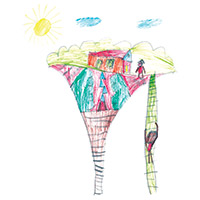 Every situation that challenges us indicates a growth area. When we understand this, we learn from every situation and experience lifelong learning. Our consciousness grows through challenges. Challenges and overcoming them make our journey meaningful and holistic. In order to learn from challenges it is important for us to view challenges as opportunities for growth. And not get stuck in blame or victimhood.
Every situation that challenges us indicates a growth area. When we understand this, we learn from every situation and experience lifelong learning. Our consciousness grows through challenges. Challenges and overcoming them make our journey meaningful and holistic. In order to learn from challenges it is important for us to view challenges as opportunities for growth. And not get stuck in blame or victimhood.
7. Dropping the Ego
“The process of dropping our ego is a conscious choice we must make in our journey”
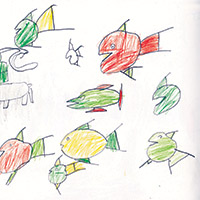 Dropping our pain body ego with our Sangha members – children, co-workers helps us co-create a Sacred Classroom. Conflicts bring out our ego and pain body. Our ego makes us take offense. We feel offended by our children and colleagues in class. Ego exists. It is important for us to recognize it and drop it. The process of dropping the ego is a conscious choice we must make in our journey. It requires self awareness and a willingness to let go. Letting go of the past, letting go of our pain body.
Dropping our pain body ego with our Sangha members – children, co-workers helps us co-create a Sacred Classroom. Conflicts bring out our ego and pain body. Our ego makes us take offense. We feel offended by our children and colleagues in class. Ego exists. It is important for us to recognize it and drop it. The process of dropping the ego is a conscious choice we must make in our journey. It requires self awareness and a willingness to let go. Letting go of the past, letting go of our pain body.
Connecting to the larger purpose of Co-creation gives us the motivation to drop our ego. We begin to experience divine consciousness through our work. When we do this, we learn wonderful and valuable soul lessons that are so important for our journey.
Contact us
Creative School and Prajña Living Wisdom Centre
#83-84, L G Lakedew, Doddagubbi Post, Bileshivale, Near SSR College, Bengaluru, Karnataka 560077, India

Prajña Living Wisdom Centre
Phone : +91 7899917211 / +91 9080234396
Email Id: vidya The Sacred Classroom @prajnawisdom.in
Web: www.prajnavidya.org

Creative School
Phone : +91 7899917211
Email Id: info The Creative School @thecreativeschool.in
Web: www.thecreativeschool.in

